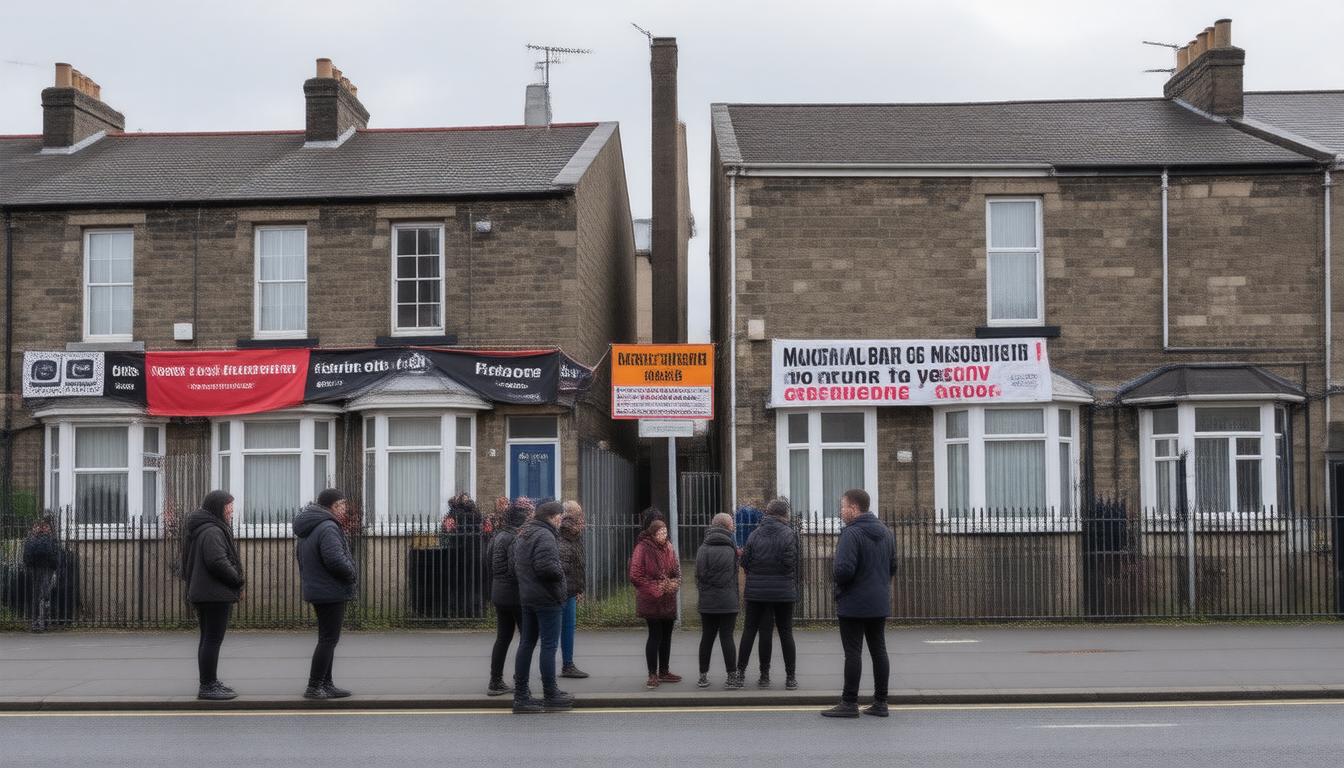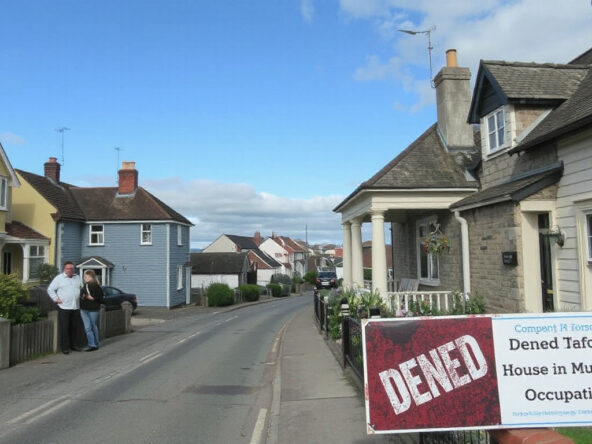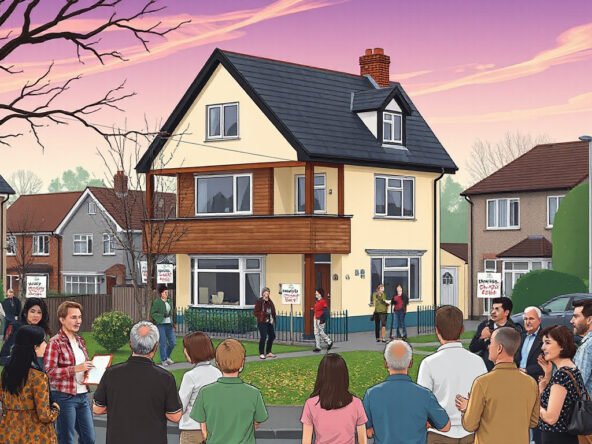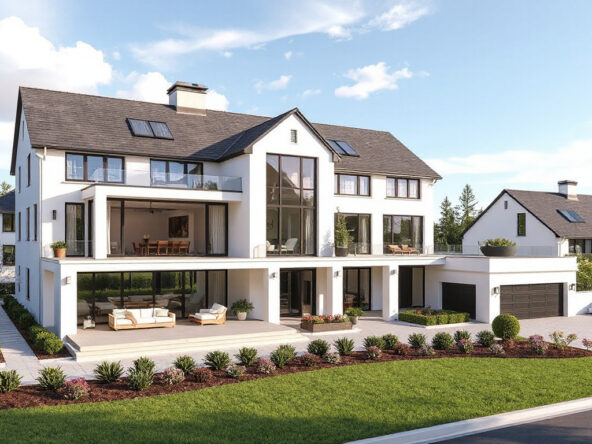In a notable move highlighting the ongoing tensions surrounding housing policies in Northern Ireland, the Belfast City Council has recently voted against granting Houses of Multiple Occupation (HMO) status for four properties in North Belfast, including two situated on Ponsonby Avenue. This decision arrives despite recommendations from council officers advocating for approval, suggesting a complex interplay of community concerns and political influences, particularly from the Sinn Féin party.
Houses of Multiple Occupation, defined as residential properties accommodating three or more tenants from separate households, have emerged as a contentious issue. Their rising prevalence is often associated with negative repercussions for local communities, such as an increase in anti-social behavior and a transformed neighbourhood character (McMahon, 2024).
During a recent council session, a proposal to convert a residence on Ponsonby Avenue into a five-bedroom HMO was met with significant local opposition and eventually rejected, with only a single Alliance councillor supporting the application. Local residents expressed concerns regarding various issues including parking shortages, traffic safety, waste management, and the fear of diminished community cohesion arising from the transient occupancy characteristic of HMOs. The community is apprehensive that the establishment of more HMOs may lead to a diminishing number of family homes, thereby eroding the area’s traditional fabric (O’Hara, 2024).
This recent vote is part of a broader trend in North Belfast, where multiple HMO conversion applications have faced rejection, highlighting persistent community resistance to HMOs and raising critical questions about the local housing policies and their implications for community dynamics.
Key Takeaways
- North Belfast Council’s rejection of HMO conversions reflects deep-seated community concerns about neighborhood stability.
- Political influences, particularly from Sinn Féin, play a significant role in shaping housing decisions in the area.
- Objections from residents focus on practical issues such as parking, traffic safety, and the preservation of community cohesion.
Community Concerns Over HMO Conversions
In North Belfast, the ongoing debate surrounding the conversion of residential properties into Houses of Multiple Occupation (HMOs) has escalated, as the Belfast City Council recently declined to grant HMO status to four properties, including two located on Ponsonby Avenue. This decision came despite recommendations from council officers who advocated for approval, indicating a significant influence exerted by local political entities. Notably, Sinn Féin has been pivotal in opposing these conversions, citing community concerns as a chief justification for their stance (Belfast Live, 2024).
HMOs, characterized by their occupancy by three or more tenants from different households, have been the subject of heated discussions due to their potential negative impacts on local community dynamics, especially regarding issues of anti-social behavior and the integrity of neighborhood character (NI Housing Executive, 2024). During a recent council meeting, an application to change a property on Ponsonby Avenue into a five-bedroom HMO faced strong opposition, resulting in a vote that reflected local resistance, with only one Alliance councillor supporting the proposal. During this session, local residents expressed their objections, raising concerns about parking difficulties, traffic safety, waste management, and the erosion of community cohesion attributed to the transient lifestyles often associated with HMO tenants (Belfast Telegraph, 2024).
The pattern of rejection for similar applications within North Belfast signals a broader unease regarding housing policies and their implications for established communities. Critics suggest that the increasing prevalence of HMOs threatens to diminish the availability of family homes and fundamentally alters the identity of local areas (Housing Rights, 2024). As the council continues to grapple with these issues, the future of housing in North Belfast remains a contentious topic, one that balances the needs for housing diversity against the preservation of community landscapes.
Political Pressures Shaping Housing Policies in North Belfast
Recent developments indicate a growing rift between council officials and the political narrative surrounding the establishment of Houses of Multiple Occupation (HMOs) in North Belfast. The resistance led by Sinn Féin is seen as a strategic effort to address constituent concerns, yet it also raises questions about the implications for housing affordability and availability in the area. The Alliance Party’s lone support for the recent HMO application further underscores the political divisions on this issue, highlighting a lack of consensus on how best to manage urban development and housing needs (Belfast Live, 2024). In the broader context of Northern Ireland’s housing crisis, local authorities are under pressure to reconcile the need for increased housing with the desire to maintain neighborhood stability and ensure community safety. This tension can make it challenging to formulate policies that are equitable and responsive to all stakeholders involved (NI Housing Executive, 2024). As debates continue, the changing landscape of North Belfast’s housing sector exemplifies the tension between the push for diverse housing solutions and the preservation of traditional community dynamics.
Feel free to contact us via WhatsApp, social media, or email.
Always find the best rooms to rent & HMOs for sale in the UK at HMO Reporter.




